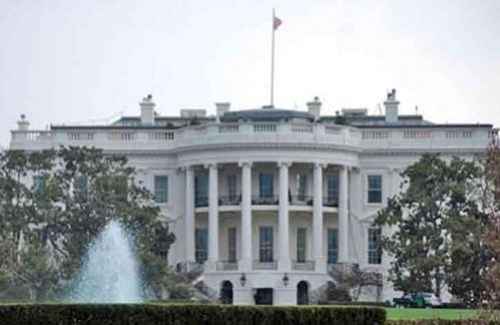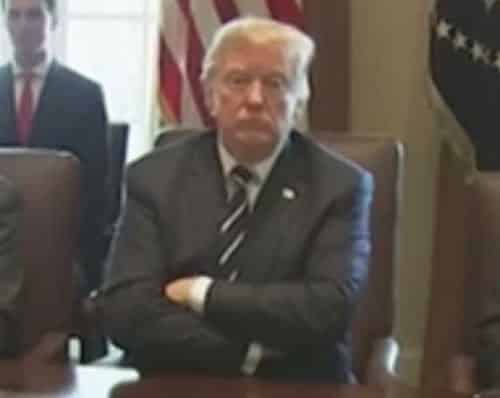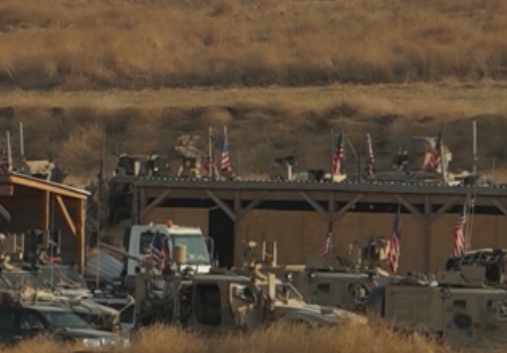[dropcap]W[/dropcap]ithout offering specifics on what led to a declaration of victory against the Islamic State (IS) terror group in Syria, the White House defended both the declaration and the decision to start bringing U.S. troops in the war-torn country back home.
The announcement, which seemed to catch some U.S. defense and diplomatic officials, as well as lawmakers, off guard, first came in a tweet from U.S. President Donald Trump Wednesday morning:
We have defeated ISIS in Syria, my only reason for being there during the Trump Presidency.
— Donald J. Trump (@realDonaldTrump) December 19, 2018
The sudden declaration led to a flurry of questions, forcing both White House and Pentagon officials to clarify the president’s tweet with statements of their own.
“We have started returning United States troops home as we transition to the next phase of this campaign,” White House press secretary Sarah Sanders said, adding the defeat of IS did not mean the military campaign by coalition forces was ending in Syria.
Hours later, Pentagon spokeswoman Dana White, using an acronym for the group, said in a statement that “the coalition has liberated ISIS-held territory, but the campaign against ISIS is not over.”
By late Wednesday, Trump weighed in again, releasing a video statement.
“We have won against ISIS. We’ve beaten them and we’ve beaten them badly,” the president said, standing outside the White House. “So our boys, our young women, our men, they’re all coming back and they’re coming back now. We won and that’s the way we want it and that’s the way they want it.”
After historic victories against ISIS, it’s time to bring our great young people home! pic.twitter.com/xoNjFzQFTp
— Donald J. Trump (@realDonaldTrump) December 19, 2018
Neither the White House nor the Pentagon was willing to say how long it would take to safely withdraw all U.S. forces from Syria, citing operational security. They noted only that planning was underway and that it would be done in an orderly fashion.
Reuters quoted a U.S. official as saying the State Department was already evacuating all personnel from Syria and that the time frame for the troop withdrawal was 60 to 100 days.
[content id=”79272″]
Further confusing the decision, White House officials admitted that IS fighters are still clinging to one last pocket of territory around the town of Hajin, in northeastern Syria, though they said the terror group’s fighters were not mounting enough resistance to postpone a declaration of victory.
“We believe that that remaining pocket can be eliminated both by our own guys, but then also by regional and partner forces that are local to it,” a senior administration official said on background late Wednesday.
U.S. troops “were always there to destroy the territorial caliphate of ISIS,” the official added. “I think the president was perfectly justified when he judged that mission was at an end and the caliphate had been destroyed.”
But the decision to immediately begin withdrawing the approximately 2,000 U.S. troops in Syria spawned both confusion and criticism.
“It blindsided me,” said South Carolina Republican Sen. Lindsey Graham, usually a Trump ally. “This is chaos.”
White House officials pushed back, arguing the time was right and that no one should have been surprised by the move.
“I would challenge that,” the senior administration official said when asked why top Defense and State department officials seemed to be caught unaware. “The president’s statements on this topic have been 100 percent consistent.”
Still, the announcement ran contrary to what top U.S. officials have been saying for months about the endgame against IS in Syria.
Just last week, Brett McGurk, U.S. special presidential envoy for the Global Coalition to Defeat ISIS, told reporters at the State Department that liberating the last 1 percent of IS-held territory could take “a period of months.”
“There is a significant concentration of the most hardened ISIS fighters in that little splotch of territory,” McGurk said on Dec. 11. “A couple thousand hardened fighters remain in that area.”
Pentagon estimates from August of this year also warned that IS still had at least 13,000 fighters in Syria, where the caliphate had already collapsed.
Defense Secretary Jim Mattis and other senior U.S. officials also have been advocating for a longer-term military presence in Syria to help ensure IS cannot re-emerge as a force in the Middle East.
Until now, U.S. troops in Syria had been working closely with an alliance of Kurdish and Arab militias known as the Syrian Democratic Forces.
The SDF issued a statement Thursday rejecting Trump’s assertion that Islamic State has been defeated, and saying a U.S. withdrawal would allow for a resurgence of the group.
But White House officials said the SDF and other partner forces would be responsible for eliminating the last pockets of IS control.
“We are transitioning primary responsibility for the defeat of the few remaining ISIS remnants in Syria to our allies and partners [on the ground],” a second senior administration official told VOA on background.
Might not last
However, there are indications that those local partner forces may quickly fade once U.S. troops are gone.
A source close to SDF officials in Syria told VOA that many of the Kurdish fighters taking on IS in Hajin and surrounding areas were prepared to withdraw and reinforce Kurdish positions in the north in preparation for a possible incursion by Ankara, which sees the Kurds as an extension of a Kurdish terrorist group fighting inside Turkey.
Some of the SDF’s Arab fighters may join them, the source said, though many would likely return home.
The U.S. withdrawal also raises questions about the fate of hundreds of IS foreign fighters who have been taken prisoner and are currently in SDF custody. Many governments have refused to take them back, and there is a chance that what is left of the SDF could set them free without the prospect of any U.S. support.
“I think the Kurds will view this as a tremendous betrayal,” Andrew Gabel, a research analyst at the Foundation for Defense of Democracies in Washington, told VOA. “They will have little choice but to somehow come to terms with [Syrian President Bashar al-]Assad, Russia, Iran. That’s not really good for them, I don’t think, and that’s certainly not good for the U.S. position in the region.”
A sample of comments left on the VOA Kurdish service Facebook page suggested Trump’s decision would lead to Kurds and U.S. allies no longer trusting the United States, and that other countries involved in the Syrian conflict would benefit.
Mixed response
International reaction to the U.S. announcement was mixed.
In a statement late Wednesday, Britain, a key ally in the fight against IS, sounded a note of caution.
“The global coalition against Daesh has made huge progress,” a British government spokesperson said, using the Arabic acronym for the terror group.
“Important advances have been made in recent days in the last area of eastern Syria which Daesh has occupied,” the spokesperson added. “But much remains to be done, and we must not lose sight of the threat they pose.”
France’s European Affairs Minister Nathalie Loiseau pledged Thursday to remain a part of the coalition effort fighting Islamic State in Syria, saying on CNews television that while significant progress has been made, the fight continues.
French Defense Minister Florence Parly also used a series of Twitter posts to say Islamic State “has not been wiped off the map” and that the group must be militarily defeated.
Russia’s Foreign Ministry also praised the decision, according to the TASS news agency, saying it would improve the chances for a political settlement of the eight-year-old Syrian civil war.
White House officials dismissed any connection between the withdrawal of the troops and the ongoing war in Syria, and additionally dismissed criticism from lawmakers, like Graham, who accused Trump of making a “huge Obama-like mistake.”
Former President Barack Obama drew the ire of Trump for withdrawing U.S. forces from Iraq in before Iraqi forces collapsed at the hands of IS in 2014.
“That’s an apples-and-oranges comparison,” a senior administration official said. “What the President [Trump] told us to do — what he directed this administration to do — was destroy the territorial caliphate of ISIS, not turn Syria into a utopian democracy.”
Sen. Rand Paul, a Kentucky Republican who is a member of the chamber’s Committee on Foreign Relations, praised the move on Twitter:
I am happy to see a President who can declare victory and bring our troops out of a war. It’s been a long time since that has happened. https://t.co/fEBb8080fK
— Senator Rand Paul (@RandPaul) December 19, 2018
Source: VOA








